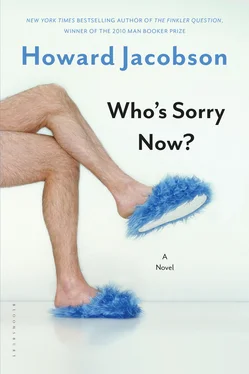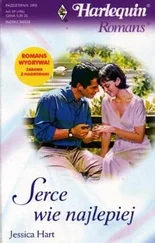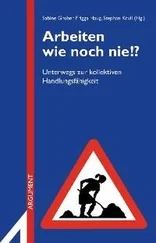‘We’re not judgemental,’ Juliet said, putting hers away in a handbag, Kreitman noticed, that hadn’t come from the family business. ‘It’s a bit embarrassing for us, that’s all —’
‘And a bit naffo — ’ Cressida added.
‘But if squeaking your sockets for Aunty Chas is what makes you happy …’
‘… who are we to complain?’ Cressida completed.
If I were in the market for girls today, Kreitman thought, I wouldn’t succeed. They’d eat me alive. I’d have to turn faggot. ‘How would you feel,’ he summoned the courage to ask, ‘if we married?’
Cressida hung out her tongue. Juliet made pin wheels with her eyes. ‘You and Aunty Chas? Are you serious?’
‘ I am. I’m not sure about Aunty Chas.’
‘Doesn’t marriage still take two, Daddy?’ Cressida wondered. ‘I know we’ve been away for a few months …’
‘And aren’t you still married to Mummy?’ Juliet enquired.
‘Yes and yes,’ Kreitman said. ‘And for those reasons, or at least for the first of those reasons, it probably won’t happen. I think Chas is worried about how Tim and Kitty will take it.’
‘We can tell you,’ Juliet said. ‘Badly.’
‘Both?’
‘No,’ Cressida said. ‘Kitty badly. Timmy very badly.’
‘You’ve had the discussion?’
‘We’ve had the “Let’s not even discuss it”, which is more serious.’
‘Is it me?’
Cressida treated her father to one of her most brilliant smiles. ‘Why, is Aunty Chas seeing someone else as well you?’
Juliet laughed. ‘Well, there’s a thought. Our little Kraut did imply he fancied Aunty Chas was an itsy bit sweet on him.’
Kreitman stiffened, pushing his plate from him. ‘How did he imply that?’
Juliet shrugged. ‘How does anyone imply anything? We were talking …’
‘ Where were you talking?’
‘In a bar, after the club. Does it matter?’
‘No. It doesn’t matter. Go on.’
‘There’s no on to go to, Daddy. We were just chatting, Aunty Chas’s name came up, Nyman said something vague — you know he isn’t a master of language — about how kind she’d been to him …’
‘He used the word “kind”?’
Juliet checked with Cressida. ‘Kind?’
Cressida feigned boredom. ‘Kind, nice, hot, sexy, giving him the come-on — I wasn’t listening.’
‘And he said this,’ Kreitman wanted to know, ‘in front of Kitty and Tim?’
‘Yeah, why not? It’s some sort of joke between them.’
‘The joke being?’
‘Oh, come on, Daddy. Is everything sacred suddenly? Just because our parents have all decided to behave like children, does that mean we aren’t allowed a bit of fun at their expense? Nyman is one of those professionally homeless people, Aunty Chas offers him a bed for a couple of nights, we enjoy jumping to salacious and I have no doubt highly improbable conclusions. Didn’t we learn how to do that from you?’
Kreitman fell vacant. ‘I don’t know what you learned from me,’ he said. ‘But whatever it was I’d unlearn it.’
Had you asked him, a second later, what he had just said, he wouldn’t have been able to tell you. There was no room in his head for recollection. Every spare inch was taken up by what had just flown into it. The information, and the interrogations which waited on it as inevitably as night waited on day … What bed, what nights, how recently, how often, to what pleasurable end …? But he knew to what pleasurable end. He had the picture to go with the question. Dartmoor, Richmond — what difference?
O, full of scorpions is my mind, dear wife. That all? Cry baby! Kreitman would have killed for mere scorpions. On his mind fed a whole menagerie of monsters.
And they weren’t only gathered there to feed, either. In the fouled corners of Kreitman’s mind the world’s bestiary feasted and lied and fornicated and shat.
It sounds sinister. A massive mechanism for spying. The London Eye.
A giant bicycle wheel, 135 metres in height, 2,100 tonnes in weight, all included, and observable just about everywhere in the city, the London Eye turns at 0.26 metres per second, just fast enough, if you draw a bead on something stationary, to discern with the naked eye. It is a marvel of modern engineering, no doubt about it. And beautiful to behold. Thirty-two luminous capsules, or pods, apparently sea green in colour with the light through them, carry twenty-five passengers apiece. So that’s eight hundred of us up there, in principle, at any one time. On a clear day, we can see for twenty-five miles. Which is how many miles between us?
No citizen of sound mind dislikes the London Eye. Of those who are able to see it, or enough of it to say they see it, from their bedroom windows or balconies or rooftops, a sizeable proportion claim to have stood and watched it complete its thirty-minute cycle. You find a pod you like and then, without changing your position, you follow its painstaking revolution until it returns to where you first hit on it. You can do this alone or with a lover. With wine or empty-handed. With the radio or headphones on, or silent. Watch for more than thirty minutes and you become woozy, uncertain whether you are watching it or it is watching you. At night you can see the flashes of cameras, little light explosions, as pretty as shooting stars, coming from the highest pods. How many of those taking photographs have photographed you looking?
For some people a giant bicycle wheel, revolving high over the city, would be a nightmare. People who don’t like bicycles, people who don’t like wheels, people who have suffered traumas as a consequence of either, people such as Marvin Kreitman.
Yet Kreitman, too, is watching the wheel, fastening upon a pod and following its half-hour revolution. Is that how long you stay on, a half-hour? Can you pay to stay on longer, or is it strictly thirty minutes and then off? If you can stay on longer, do you have to make that decision when you buy your ticket on the ground — assuming that’s what you do — or can you renew as an afterthought, on an impulse, on a lovers’ whim, in the pod itself? Is there a limit to how many times you can go round? Is there an hour when there is so little business that you can have a capsule entirely to yourselves?
These are the questions which trouble Kreitman as he watches, human-interest questions rather than any that bear upon the weight and size of the structure, the amount of cabling needed to keep it upright, or the problems which the wind must pose.
For the wheel Kreitman watches is a wheel of fire, imagination’s wheel, and the skills of engineers are irrelevant to a wheel of that sort.
Kreitman had a sighting of the wheel’s upper rim from his Clapham pencil box, but nothing that could honestly be called a view. It’s even possible that all he had a sighting of were cranes, swaying in the vicinity of Jubilee Gardens, helping to build the new riverside. In order to get a view proper he had to change his address. Nothing permanent. He didn’t want to look at the wheel for ever, or for however long it was provisionally booked to stay up. He just wanted to look at it for a while. How long was a while? He didn’t know. More than an hour, but less than a year. For the best views, in the full-on, reach-out-and-grab-a-capsule sense, there was no beating those characterless flats to which the offices of the once Greater London Council and its neighbours had been reduced. But Kreitman could find nothing rentable there on a short-term basis, nor was he convinced, once he thought about it a second time, that he wanted to be quite so unnervingly close. Seeing the wheel was the object, not the wheel seeing him. In the end he found an apartment hotel in Soho, so new it wasn’t finished yet, and so bijou it made a virtue of that fact, which enjoyed the advantage of a communal roof terrace, commanding panoramic views, and what is more was situated just a collision away from the very restaurant where he and Charlie Merriweather had enjoyed their last ever dinner as good friends, proud husbands and sane men. And Kreitman was not one to look a gift horse in the mouth.
Читать дальше












